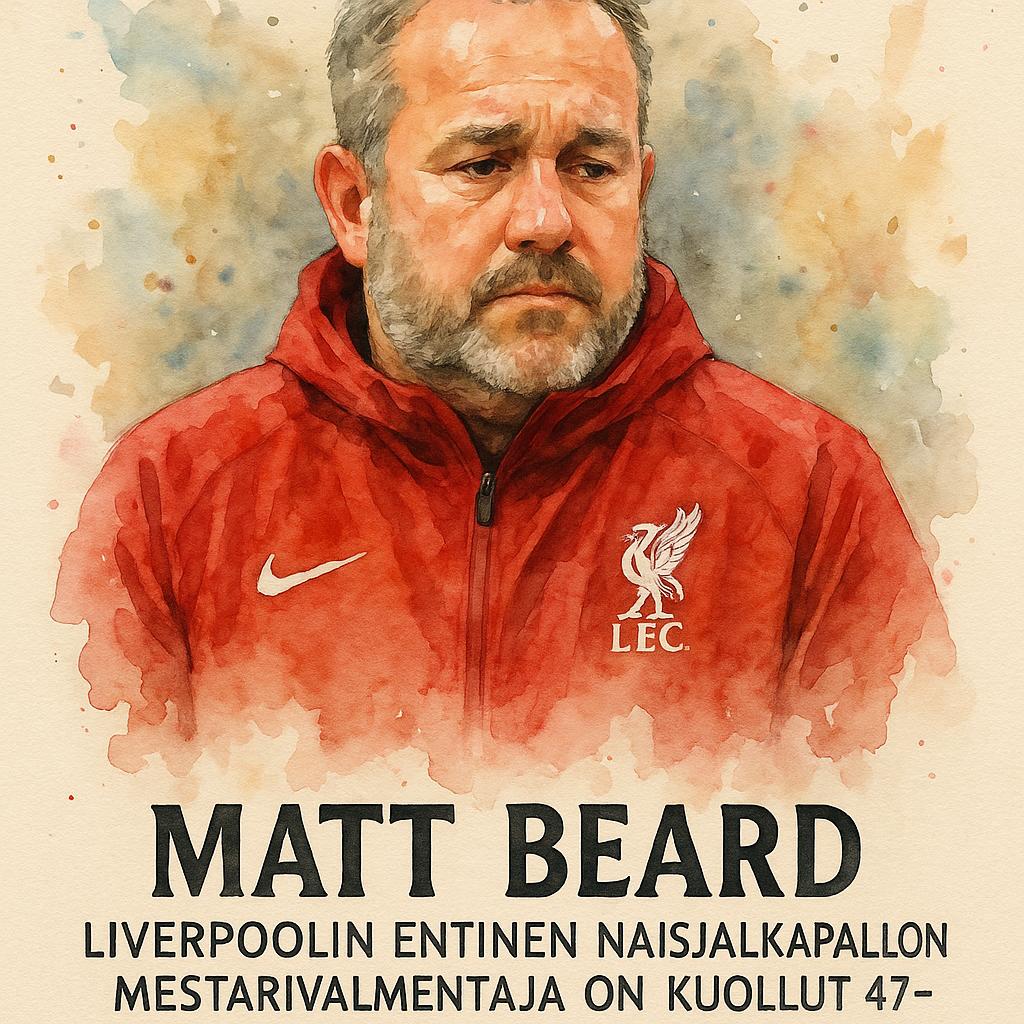Matt Beard Liverpoolin entinen naisjalkapallon mestarivalmentaja on kuollut 47-vuotiaana – uraauurtajan perintö elää
On Friday night, English football was struck by heartbreaking news: Matt Beard, the former Liverpool manager, has died at just 47 years old. The club announced his passing on X (formerly Twitter), sharing condolences with his family and loved ones. At this time, no cause of death has been made public.
For those who followed the rise of women’s football in England, Beard’s name is impossible to forget. His contribution went beyond medals — he was a pioneer at a time when the women’s game was still fighting for recognition and respect.
Building Liverpool’s golden era
Beard’s story will forever be tied to Liverpool, where he oversaw one of the brightest chapters in the women’s team’s history. Under his guidance, the Reds won back-to-back Women’s Super League titles in 2013 and 2014. Those triumphs were about more than trophies; they gave the league momentum, visibility, and growing credibility in the public eye.
At a time when the WSL was still finding its place, Beard shaped a team that drew larger crowds and media coverage – sparking inspiration for players and fans alike. His return to the club in 2021 was just as defining. With confidence and clarity, he secured Liverpool’s promotion back into the top flight at the very first attempt. It was signature Beard: rebuild, inspire, succeed.
A coach who crossed borders
Although Liverpool was his footballing home, Beard left his mark around the world. In the United States, he took charge of the Boston Breakers, showcasing his ability to develop players in one of football’s most unpredictable environments. Back in England, spells at West Ham and Bristol City revealed another side of his leadership — stepping into clubs that needed a unifying vision, not just tactical training.
His coaching philosophy revolved around three things: discipline, tactical intelligence, and unity. Many players who came under his wing went on to represent England or play at the highest levels of the game. That legacy is part of the foundation on which women’s football continues to grow.
A community in mourning
The tributes poured in almost immediately. The Women’s Super League described him as a pivotal figure in the game’s growth. Coaches, players, and clubs from across the globe echoed the same sentiment: that Beard’s life cannot be defined by wins alone, but by the people whose paths he changed.
For Liverpool supporters, his bond with the club was personal. He wasn’t a passing figure; his presence became part of the team’s identity. Even when he departed in early 2024, the culture and spirit he had nurtured remained deeply embedded.
Gone too soon, but leaving a legacy
What cuts deepest is the sense of unfinished business. At only 47, Beard still bore the experience, vision, and dedication needed in the era of women’s football’s most dynamic growth. His passing reminds us of a truth he embodied: that the sport is about more than goals and victories. It is about people, mentorship, and building something bigger than oneself.
To his players, he was a guide — sometimes even a father figure — helping them through the challenges of a demanding profession. That human connection was the core of why his teams not only succeeded but thrived.
A life that changed the game
- Matt Beard has died aged 47.
- Twice won the Women’s Super League with Liverpool (2013, 2014).
- Managed Boston Breakers, West Ham, and Bristol City.
- Returned to Liverpool in 2021, winning promotion back to the WSL.
- Celebrated as a driving force in the growth of women’s football in England.
Matt Beard’s absence leaves an empty space across English football, but his impact endures. His career was about more than results. It was about opening doors, raising standards, and nurturing dreams. He will be remembered as a winner, a trailblazer, and as someone who believed in women’s football long before it became the global phenomenon it is today.
👉 How do you remember Matt Beard’s impact on the women’s game?
—
Would you like me to reshape this with a magazine-profile style introduction — perhaps starting with a vivid anecdote or a scene at Anfield to draw readers in — or would you prefer to keep it in this clear, news-feature tone?
